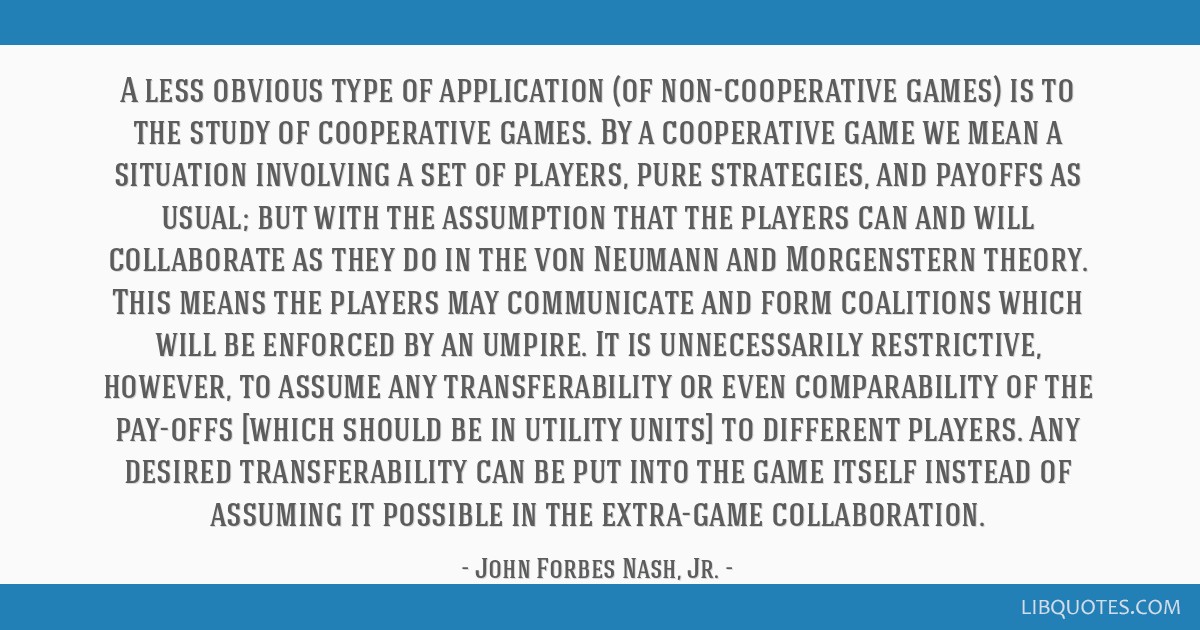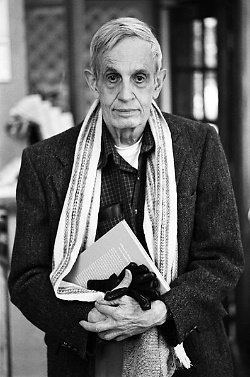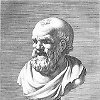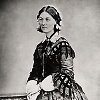A less obvious type of application (of non-cooperative games) is to the study of cooperative games. By a cooperative game we mean a situation involving a set of players, pure strategies, and payoffs as usual; but with the assumption that the players can and will collaborate as they do in the von Neumann and Morgenstern theory. This means the players may communicate and form coalitions which will be enforced by an umpire. It is unnecessarily restrictive, however, to assume any transferability or even comparability of the pay-offs [which should be in utility units] to different players. Any desired transferability can be put into the game itself instead of assuming it possible in the extra-game collaboration.
Nash (1951), as cited in: Trockel, Walter. Can and should the Nash program be looked at as a part of mechanism theory? Springer Berlin Heidelberg, 2003.





















